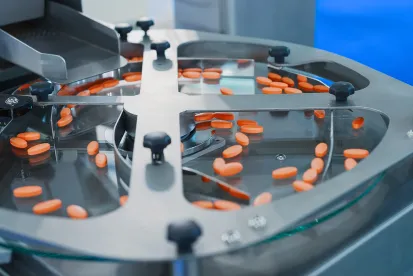In the wake of the nomination of Kathi Vidal as Director of the USPTO, there will be significant attention paid to the agency’s responses to calls from both the executive and legislative branches to remake the agency’s perceived role in shaping the pharmaceutical pricing landscape.
Earlier this year, the executive branch’s support for IP waivers for COVID-19 vaccines was followed by a July executive order that, in part, directed the FDA to identify to the USPTO any concerns regarding unjustifiable delay in generic and biosimilar competition and adverse impacts on drug pricing. Certain areas of concern and potential agency cooperation identified in the FDA’s subsequent September 10 letter to the USPTO were reiterated in letters of September 9 and 16 sent respectively from key members of the Senate Judiciary Intellectual Property Subcommittee and a group of bipartisan Congressional signatories.
In their September letter, the FDA expressed interest in greater cooperation with the USPTO, including interest in facilitating examination of patent applications and identification of prior art by making FDA databases and resources available to USPTO Examiners. A call for increased interagency cooperation was echoed in the September 9 Senate letter, which specifically requested. that the two agencies work to reduce inconsistent representations made by patent applicants that result in improper allowance. While such inconsistencies are acknowledged to be in violation of the current duty of disclosure and can result in unenforceability of a patent due to inequitable conduct, the Senate letter further suggested that such misrepresentations could serve not only as a ground for rejection but may also be grounds for still other sanctions.
The FDA also identified concerns that patent misuse for delay of generic or biosimilar entry could arise from several existing practices such as patent evergreening, product hopping, and the use of continuation practice to create “patent thickets.” While the FDA also separately requested that the USPTO provide further information regarding PTAB proceedings such as inter partes review (IPR) and post grant review (PGR), the September 16 Congressional letter drew a more direct connection between PTAB trials and drug pricing. In particular, the Congressional signatories contended that the increasing rates of denial of IPR petitions vitiated an important tool for countering patent thickets and product hopping.
The USPTO has yet to provide any response or comments regarding this executive and congressional comments. However, even if the USPTO agrees with the FDA and Congressional concerns, it remains to be seen how any new policies might be specifically implemented. For example, interagency cooperation between the USPTO and FDA may need to take into account the confidential nature of certain pre-approval FDA proceedings. With respect to imposing limits on continuation applications, the USPTO previously attempted to do so via a 2007 Final Rule where inter alia an Applicant was limited to two continuation applications as a matter of right, and any further applications required justification by the Applicant. The USPTO’s proposed restrictions were challenged in court, and the rules were eventually rescinded by the new USPTO Director in the subsequent presidential administration.
Upcoming confirmation hearings may provide insight as to the agency’s expected priorities during the present presidential administration.



 />i
/>i
